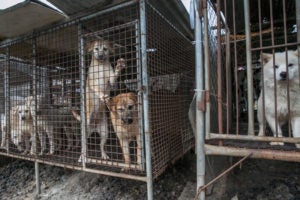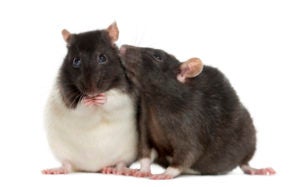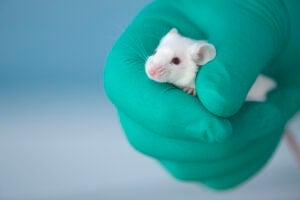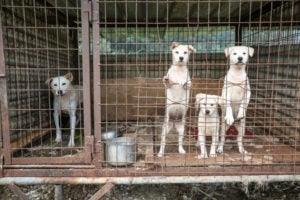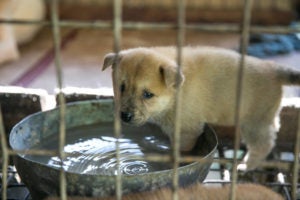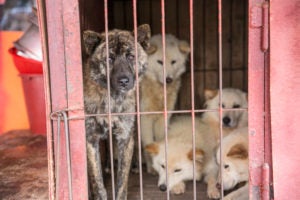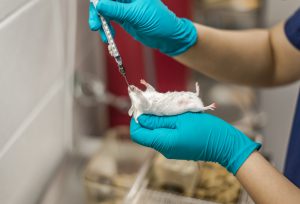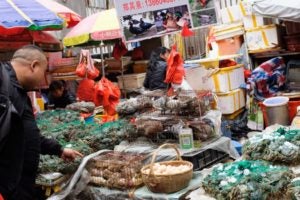
WASHINGTON—Wildlife farmers in two provinces in mainland China are being offered a government buy-out to facilitate a move away from breeding wild species for consumption, as part of the country’s crackdown on the wildlife trade in the wake of the COVID-19 pandemic. The plans, published on May 15th, see Hunan and Jiangxi provinces provide an exit strategy for wildlife farmers who will be compensated to allow them to transition to alternative livelihoods such as growing fruit, vegetables, tea plants, or herbs for traditional Chinese medicine. Some may choose to switch to breeding other animals such as pigs and chickens.
On February 24th, the Standing Committee of China’s National People’s Congress banned wild animal consumption for food, and wildlife campaigners at Humane Society International hope that the province-sponsored buy-out plans will help to ensure the ban is a success.
Hunan province will offer farmers compensation to the tune of 120 yuan per kilogram of cobra, king rattle snake or rat snake; 75 yuan per kilogram of bamboo rat; 630 yuan per porcupine; 600 yuan per civet cat; and 378 yuan and 2,457 yuan per wild goose and Chinese muntjac deer respectively.
Dr Peter Li, Humane Society International’s China policy specialist, said: “By subsidising wildlife breeders to transition to alternative livelihoods, these provinces are demonstrating global leadership on this issue, which other provinces and countries must now follow. Chinese farmers not only have an opportunity to leave a trade that poses a direct threat to human health – something that can no longer be tolerated in light of COVID – but also to transition to more humane and sustainable livelihoods such as growing plant foods popular in Chinese cuisine. This is a model for change that Humane Society International has been putting into practice with dog meat farmers in South Korea for some years, with dog farmers transitioning over to farming chillies, mushrooms, and water parsley. In China you can easily imagine the vast sheds that once factory farmed bamboo rats and other unfortunate wildlife, being adapted to grow mushrooms and herbs instead.”
Dr Li believes the closure of China’s destructive wildlife consumption trade could have the advantageous consequence of boosting the availability of healthy plant-based foods, in line with China’s national dietary guidelines recommending a 50% reduction in meat consumption. “People in China are increasingly interested in plant-based foods, in fact, a more plant-centred diet is far more traditional than one based on wildlife meats, or intensively farmed domesticated animals, as Chinese cuisines have led the way with plant proteins such as tofu and seitan.”
The buy-out plan does have a blind spot, it does not include the vast number of wild animals bred in China not for consumption but for fur, traditional Chinese medicine and for entertainment/pet trade/display. China’s overall wildlife trade is worth around 520 billion yuan ($73 billion/£57 billion), but although global focus has understandably been on wildlife consumption trade worth 125 billion yuan ($18 billion/£14 billion), the largest proportion of China’s wildlife farming – the fur industry worth 389 billion yuan ($55 billion/£43billion) annually – is conspicuous by its absence from any COVID-19 related bans or buy-outs. In fact there are plans afoot in China to reclassify the millions of raccoon dogs, foxes and mink farmed for fur from “wildlife” to “livestock” as part of a new resource list by the Ministry of Agriculture, State Forestry and Grassland Bureau.
Dr Teresa Telecky, HSI’s vice president of wildlife, said: “Rebranding fur-bearing wildlife as livestock doesn’t alter the fact that there are insurmountable challenges to keeping these species in commercial captive breeding environments, and that their welfare needs simply can’t be met. In addition, there’s clear evidence that some of these species can act as intermediate hosts of viruses, such as COVID-19, which is why governments around the world must stop all trading in wildlife.”
As part of the buy-out plans in Hunan and Jiangxi provinces, the fate of the wildlife stock is also a welfare issue of concern. There are three options proposed – release of animals into the wild in suitable and non-residential habitat; utilisation by other industries such as zoos, laboratory research, and traditional medicine; or mass culling.
HSI’s Dr Li said: “While the transition of wildlife farmers to other livelihoods is of course a very positive move for both people and animals, a really sad inevitable consequence of that is that a vast number of the wild animals being mass produced on farms across China will likely be culled or moved to other exploitative industries such as zoos and traditional medicine where animal welfare is typically extremely low and conditions woefully sub-standard. Culling programs in China and other countries in Asia can also involve truly barbaric methods such as live burial, and so we really hope to see the Chinese authorities mandating against such cruelty. The wild animal breeding farms and factories facing closure and transition must not sacrifice animal welfare in an effort to implement the new changes.”
Only farms that have been operating legally with breeding permits before February 24th are eligible for compensation. The initial roll-out covers 14 species of farmed wildlife. A second group of farmed species will be announced after the finalisation of the government’s “livestock” list.
ENDS
Media contact: Wendy Higgins, Director of International Media – whiggins@hsi.org

